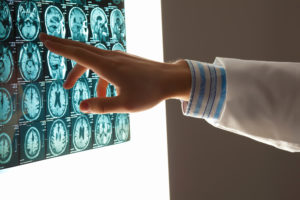Personal Injury and Brain Death
Questions about brain death, brain function, and similar issues often arise after a friend or loved one suffers a serious injury. What does it mean to be brain dead? Are there different types of brain death? What does it mean to be comatose, and is this different from brain death? Today, we are going to take a close look at brain death in personal injury cases so you can have a better understanding of some of these essential issues.
The Brain Has More Than One Part
To better understand brain injuries and brain death, we first have to understand the brain itself. The brain is a complicated organ comprised of many different parts. Each part can serve a specific function, multiple functions, coordinate with other parts, or any combination thereof. More on this website
At the most basic level, it’s useful to divide the brain into two main areas: the lower brain and the upper brain. The upper brain is the part responsible for the functions that most of us associate with our brains: cognition, memory, thought, and personality. The lower brain, on the other hand, is the part that controls most of the bodily functions we don’t normally think about unless something goes wrong. This part of the brain, for example, regulates our breathing, perspiration, body temperature, reflective movements, our sleep and wake cycles, and even our heartbeats.
Brain Death
When doctors refer to brain death they are referring to a lack of brain activity in both the upper and lower parts of the brain. Someone who is brain dead is no longer showing any evidence of higher cognitive functions, such as thought or memory, nor is that person’s brain actively regulating his or her bodily systems. Some brain-dead people can have their bodily systems sustained through the use of various machines, and some can maintain heartbeats without the aid of machines. There are no known instances where someone has recovered from brain death.
Persistent Vegetative State
A persistent vegetative state, or PVS, is a condition in which a person’s lower brain is still functioning, but the upper brain has lost some, or all, function. A person in PVS still has a beating heart, still breaths, and still shows signs of life, but that person’s higher cognitive abilities are not present. Some people in a PVS have recovered higher brain function, but it is rare.
Coma
When someone is involved in a serious accident or suffers a significant injury, that person can often fall into, or be medically induced into, a comatose state. People in a coma often appear as if they are merely sleeping. People in comas are not brain dead, as both upper and lower parts of the brain are still active. However, their brains are in a prolonged unconscious state. Most people in a coma eventually recover, though some slip into a persistent vegetative state, or even into brain death.
If you or a loved one has suffered a brain injury due to a personal injury, and you believe you may have a case, speak with a local personal injury attorney right away.

